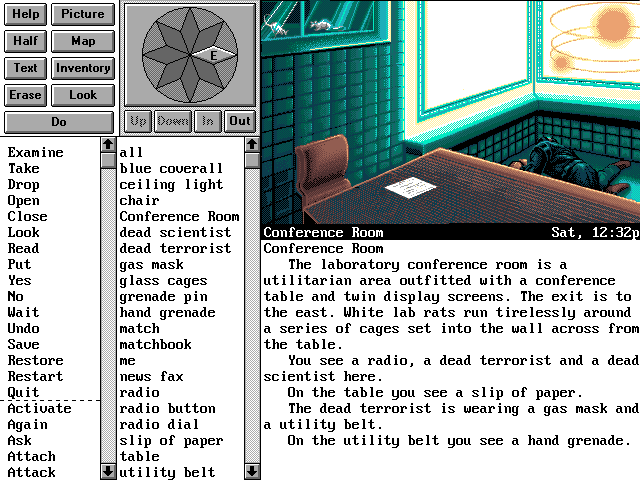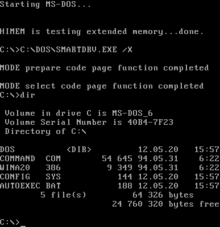I have no sources to cite; this is all conjecture.
There seems to be a general trend (but not an absolute truth) that parser audiences lean older. (We see you, @SomeOne2)
I’m certain the cynical among you can think of all kinds of rude stereotypes regarding millennials and zoomers and attention spans, which I would love to not see in the replies.
I feel like there might be a learned skill that is taken for granted in parser audiences, which goes beyond “how to play parsers, and we might not have done the best job in passing that down”.
I’d like to get some data while I talk:
For those of you who enjoy parsers games:
- I grew up with a command-line operating system
- I grew up with a graphical window-based operating system
For those of you who do not enjoy parser games:
- I grew up with a command-line operating system
- I grew up with a graphical window-based operating system
I’ve been learning emacs over SSH recently and have been noticing something.
A lot of modern games and interfaces—if we ignore the visual appeal for a moment—deliver a constant environment awareness. You always know where files are, and what options are available.
Meanwhile, a lot of command-line environments require you to have a sort of memorized mental model of your environment, and limited opportunities to remind yourself of things.
I feel like parsers seem to also have a lot of the latter kind of awareness. Players are often asked to remember the available commands, what objects are where, how the rooms are arranged, etc.
I wonder if there is an additional unrecognized skill that a lot of parser players have, which goes beyond just familiarity with the medium. If my guesses are correct, and a lot of parser players grew up with command-line operating systems, then the operating system might have trained the player’s memory abilities for the kinds of environments explored in parser games.
I grew up with graphical window operating systems, and there’s a sort of dizziness that command-line and parser environments give me, even if I prefer to player parser games. It’s always a major task of familiarizing myself with a new environment, and I find myself constantly taking notes every time I play any game because of this.
Thoughts?
(I wrote this with very little time available so it’s not perfect)

